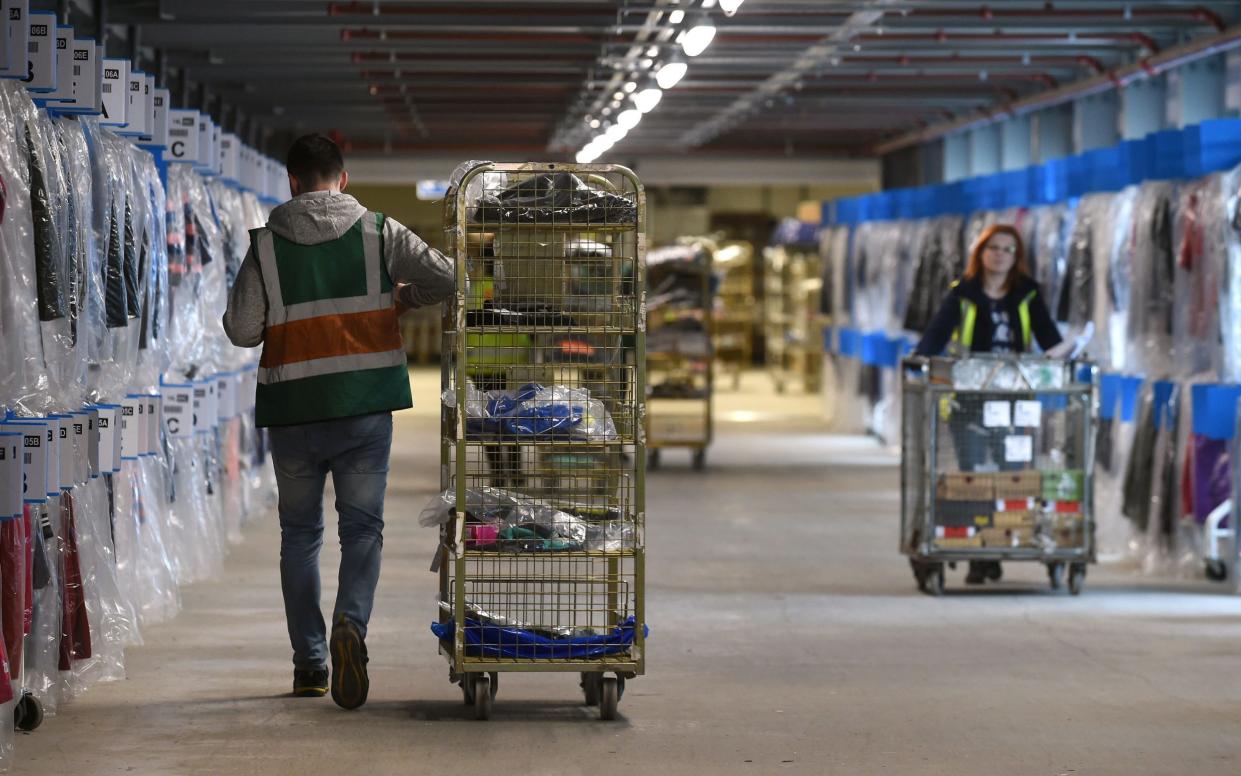Immigration is destroying the British economy

This year marks two decades since the EU opened up free movement to ten additional countries, including former Eastern Bloc members Hungary and Poland. It was a change that fundamentally altered the very fabric of the British economy.
The mass unskilled migration that followed has created new business models and transformed the faces of towns and cities right across the country.
Migration has become such an integral part of the UK economy that the institutional structures of the British state – the Treasury, Office for Budget Responsibility and Bank of England – appear to viscerally reject any attempt to stem the tide.
Whenever the topic is raised, dystopian predictions are rolled out that suggest granting the public what they want – migration levels of the sort that politicians promise at election time – would impoverish us all.
An ageing population, a relentless focus on so-called “growth”, and a disincentivised generation of young Britons make migration unavoidable, according to the Treasury orthodoxy.
Some 20 years on, politicians continue to be paralysed by these warnings. Rishi Sunak – at least ostensibly – appears to grasp the electoral imperative to shut off illegal migration. On legal economic migration, however, his actions indicate he is comparatively unprepared to shut off the flow.
While the Prime Minister has announced increases to salary thresholds for some categories of visas, he has maintained the extremely broad “shortage occupation list” and care worker schemes. In doing so, he has in effect signalled that the British economy will continue to be fuelled by mass migration. At least, that’s the theory. The reality is quite different.
We now have 20 years of evidence generated by this grand experiment, testing the idea that immigration drives growth. The results are clear: immigration is dangerously harming our economy.
And I should know. If there was a list of the all-time biggest employers of immigrant workers in this country, the chances are that I’d be near the top of it. As the former chief executive of one of the country’s largest employment agencies, I had over 100,000 people working for me every year. The majority were recent immigrants – most of whom came from those EU expansion countries.
Most of these people worked in the warehouses delivering millions of items of cheap consumer goods to British customers who were rightly happy to be getting a good deal.
Achieving this e-commerce revolution, however, required the delivery drivers, stock pickers, and cleaners to be paid wages that no one could build a sustainable household on. It required them to sign precarious temporary contracts. It placed unrelenting targets on every worker and required them to walk miles in a shift – ruling out older and disabled employees.
As a result of all these conditions, British workers were hard to come by. Firms like mine became hooked on the ever-available flow of migrant labour, particularly the availability of Eastern European workers, coming from places with wages which seemed more likely to be measured in pence than pounds. Millions were all too happy to make the journey to fuel this new British economy.
Many of my employees would share a bed, one using the bed during the day and a second at night, and living off as little as a packet of biscuits a day. Every spare penny scrimped from their wages was sent back home.
The inevitable effect of the language and culture gap meant that while here, the workers lived shadow existences, divorced from society. Meanwhile, their families endured months apart from the loved ones they had lost to labouring for the convenience of British consumers.
Every one of them was delighted to be working here in Britain for wages many times more than they could have earned at home, but no decent person can consider that this was a compassionate situation for those workers.
Meanwhile, the impact of the influx is still playing out. Long gone are the days where the salaries for performing working class jobs could sustain a whole family. Scenes in old televised dramas where working class families survive on the sole or primary salary of dad’s job at the factory now seem bizarre.
Even with the inordinately expensive support of in-work benefits such as tax credits, too many families require two working class salaries just to get by. Many find themselves no better off in work than they would have been if they sat around on benefits.
This shift – which has happened over the course of a lifetime – is no temporary blip awaiting reversion to normality. It is an inevitable consequence of the undercutting that follows by opening up jobs to workers prepared to work for peanuts.
Now, today, the Treasury appears to be choosing – quite consciously – to create exactly the sort of economy that we are getting.
No amount of sophistry or obfuscation can hide the fact that it is turning its face against not only the public’s wishes but their interests. It is doing so to prioritise the interests of the businesses that I used to run. It must stop doing so.
A new economy is possible. One where work is rewarded. One where everyone feels they have a fair stake. One where work provides for families. It is waiting to be built.
It cannot be, though, while the phoney market of mass migration exists. Today, 20 years on from its beginning, it is time to put an end to Britain’s experiment with mass migration.
Phillip Ullmann is an investor and businessman who for 20 years ran one of the UK’s largest employment agencies

 Yahoo News
Yahoo News 
